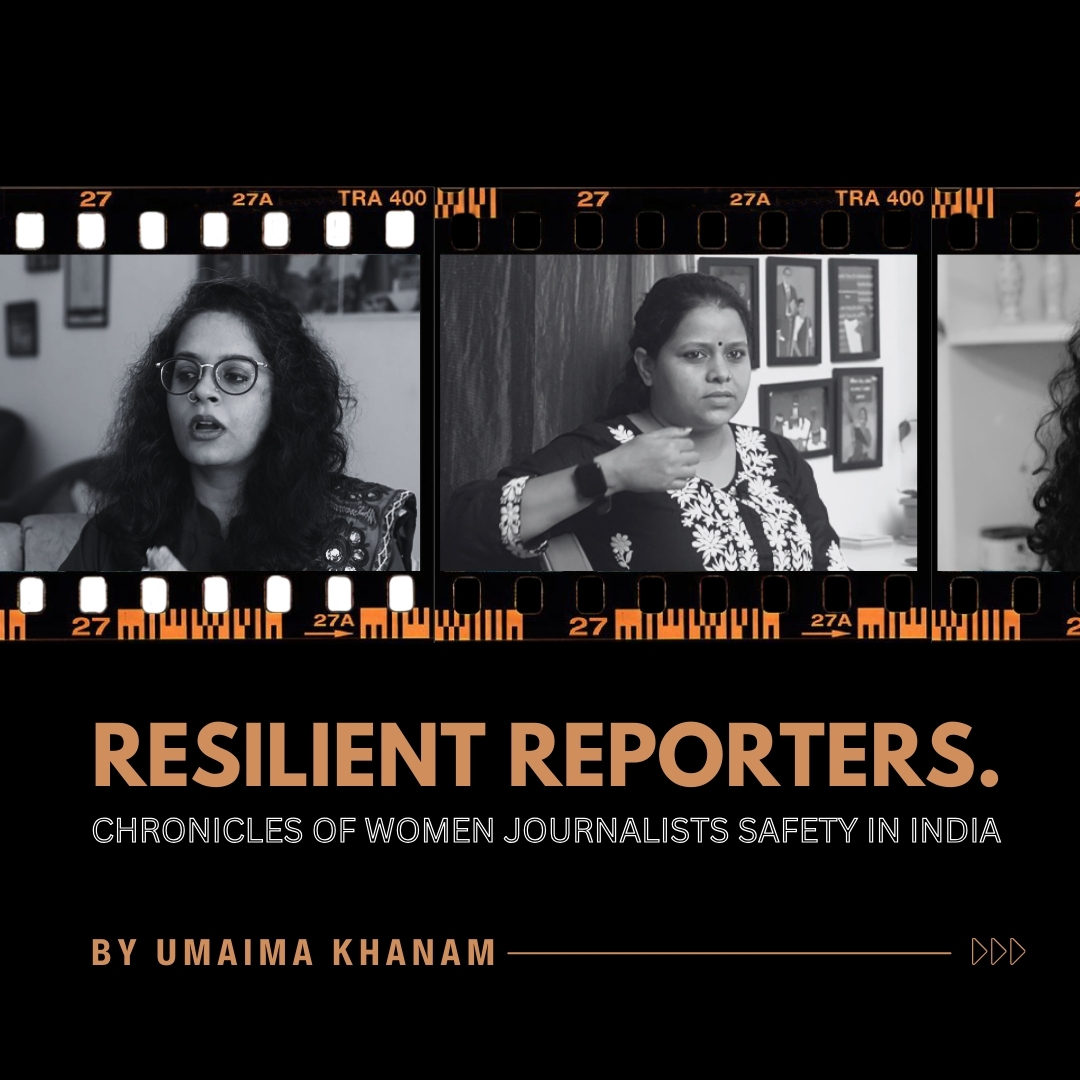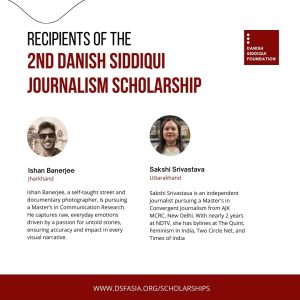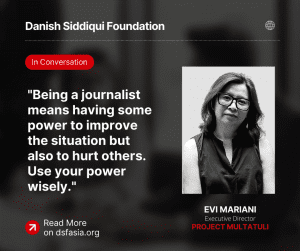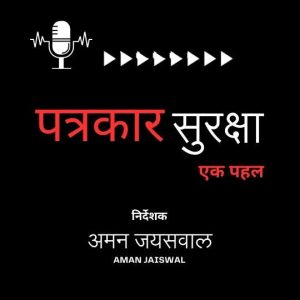What inspired you, as a recipient of the Danish Siddiqui Foundation scholarship, to produce this documentary addressing women journalist safety?
It was a very natural inclination in the course of making the film that it directed itself toward the theme of the safety of women journalists. I didn’t set out to make an exclusive, and at the same time, one cannot separate the very gendered experiences of these journalists which needs institutional intervention. As a woman on the field myself, the work of these journalists was inspiring in themselves which got me working to uncover behind the scenes what goes on towards bringing the non-mainstream news to us by these women professionals.
Could you recount some of the most impactful stories or experiences encountered while conducting interviews with journalists for this project?
The most impactful moment was when I was closing my interview with Babita of the Dalit Desk. We were discussing the bleakness of running a counter-culture media when Dalit Desk had to close due to lack of funds- she ended the conversation with how she’s still hopeful of the medium of new media and that she will be there for others from the grassroots when they try to come up. And connecting that to what Shalini of PARI said that she’s here because of women journalists of the 70s and 80s who paved the way. The community of journalists takes care of themselves in the absence of proper committees to protect them.
What were the prevalent challenges or risks highlighted by journalists during the interview process?
The most prevalent challenge of independent journalists especially women has undoubtedly been that of harassment and lack of proper committees to resolve them. Additionally, many independent reporters on the ground are not even provided as much as even a press card to safeguard themselves. These complaints came up the most during my conversations with the reporters for the documentary.
In what ways do you anticipate this documentary will increase awareness and initiate conversations about women journalist safety?
The solution to problems is a long road but at individual levels, the conversation around the theme of the safety of journalists should never stop. The issues that came up in the making are not new per se, but through this documentary, the discourse should be alive and going. The women journalists who bring non-mainstream stories against the tide of corporate media houses have a lot to risk to tell you the stories of the earth, environment, climate, and marginalized groups in terms of finance, health, and safety. As long as they keep facing these issues, we should continue the conversation around it. This documentary in that sense is not about initiation but continuation.
Could you provide any reflections or valuable lessons gained from your involvement in this documentary endeavor?
The most important one perhaps has been on the theme of the gendered experience of women on the field. As much as it should be normalized to look at a panel and immediately not label them as women or females and just professionals, somehow the gendered experience of being a woman on the field has not been separated. These professionals just want to be able to do their job. However, the looming threats increase multifold due to their gender. As a woman journalist reporting on grassroots issues, they are exposed to threats that any journalist would, and added to that is the gendered threats of being a woman. This needs an intervention.
What overarching message do you aim to convey to viewers through your documentary?
With the concentration of corporate control and dilution of urban coverage, ‘Resilient Reporters’ brings stories that challenge the status quo of the dominant mainstream media narrative by women journalists, fighting against the odds of multifold risks.
About Umaima Khanam
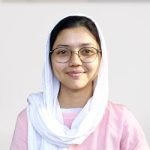
Umaima Khana, a graduate of Mass Communication from the prestigious AKJ MCRC, has experience in both the online and offline media industries. She has reported on education for two years and covered cultural events. Currently, Umaima is learning documentary and fiction formats of storytelling and looks forward to projects and opportunities aligned with her chosen field of study.
Disclaimer: The views and opinions expressed by those interviewed by the Danish Siddiqui Foundation, including all program participants, are solely their own current opinions regarding events and are based on their own perspectives and opinions. The views and opinions expressed do not necessarily reflect the views or opinions of the Danish Siddiqui Foundation, or the companies with which any program participants/interviewees are, or maybe, affiliated.

